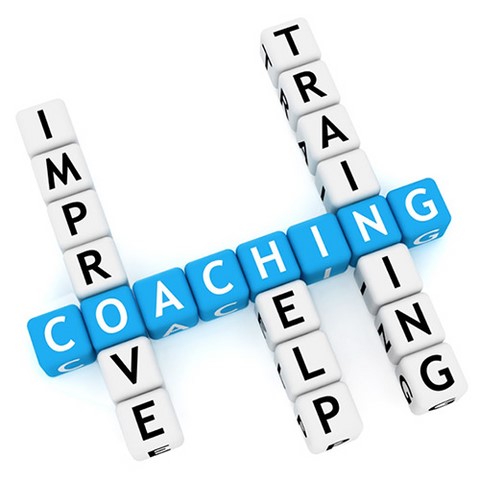The Importance of Coaching For 21st Century Teachers
The course organisers will send to the participants a list of materials related to the course topic that they can read in order to prepare for the course . The organisers will assist the participants if they need information related to the accommodation, plane tickets or other necessary details.
Course description
Being a teacher includes also the role of being a coach, mentor to their students, and teachers have to invest in improving their teaching and coaching skills. What is coaching in its essence? What does it mean to be a coach? All those questions are crucial for every teacher. This course will provide theoretical and practical answer to this complex and important subject. It is of utmost importance for teachers to develop coaching qualities, and in that way improve yourself as a teacher. This course will help you to be more creative and innovative teacher, because the profession of teacher involves the role of coaching as well. Coaching is a great deal about relationship between coacher and coachee ; it can be successful only if coachees are able to discuss every aspect of an issue or challenge with their coach. The coach may need to listen to personal problems or private information that must be kept confidential.
Methodology:
The methodological approach implicates:
- Ice – Breaking Sessions;
- Warm – up activities;
- Debates;
- Team – Building Sessions;
- Group Discussions;
- Problem – Solving Activities;
- Project – Solving Activities
- Questioning;
- Goal – Setting sessions;
- Decision – Making Sessions;
- Action – Based Strategies;
- Brainstorming;
- Planning an Structuring;
- Negotiation and Persuasion;
- Self – Motivation Sessions;
- Questionnaires
Objectives
- Learning about the methods of coaching
- Gaining knowledge about the skills you need to be an effective coach
- Learning about the approaches you can use to be a successful coach
- Developing students' skills and abilities through successful coaching
- Improving communication skills
- Developing the knowledge of how a good coach can stimulate students' creativity
- Learning the difference between coach and mentor
- Enhancing students' motivation through various creative activities
Learning Outcomes
- Introducing the basic terminology about the coaching
- Familiarizing with the roles of teachers – coaches
- Raising the awareness about the need for coaches today
- Development of tools and techniques for innovative problem solving.
- Improvement of language and communication skills
- Identifying the causes leading to early school leaving
- Practicing activities aimed at boosting the students’ motivation
- Increased capacity to cooperate on international level
- Enhancing intercultural awareness
- Broader understanding of practices, policies and systems in other educational systems
- Improve knowledge of best practices and latest research in children’s mental health issues and related fields
- Early identification of risk factors and different types of barriers, improve primary, selective and indicated prevention
Follow-up
Trainees will be given soft and hard copies of all lesson materials, which they presenting to their colleagues at their own organizations to generate interest in 21st-century teaching methods with creative thinking. In addition, a mailing list of participants will be created in order to exchange ideas/experiences. Self-evaluation materials will be provided. At the end of the course the participants will accomplish a questionnaire in order to get a detailed feedback for the effectiveness of the training event.
Programme of training activities day-by-day:
Day 1 – MONDAY
- Welcome and registration
- Introduction to the concept of coaching
- The essence of coaching ; Coaching project
- Communication – Basic Teacher's Tool
- Cooperation in the Classroom: The Jigsaw Method; Practicing Communication in Team Work
Day 2 – TUESDAY
- Team-building session;
- What are teachers' competences; discussion
- Developing vision about innovation
- The future of coaching profession
Day 3 – WENDESDAY
- Ice – breaking and warm – up activities
- Creating the effective coaching model
- 21st century coach; What are the main areas of development
- The Importance of Parental Involvement in Their Childern's Education
Day 4 – THURSDAY
- Facilitation of schools or instituions of today
- The roles of coach; from role – model to learner
- The power of teachers: Teachers today create the people of tomorrow
- What is life coaching
Day 5 – FRIDAY
- Coaching and creativity: How coaches can become more creative and stimulate critical thinking
- Coaching: Focusing on solution, not the problem
- Practical Exercises Aimed at Strengthening Students' Self-Esteem
- The silent coach; Exercise
Days 6/7 – SATURDAY and SUNDAY Workshops and Cultural/Sightseeing Activities
Day 8 – Monday
- Investing in education to become a better coach
- Coaching demands life-long learning; Debate
- The challenge of being a teacher in the world of Google
- Examples of coaching questions
Day 9 – Tuesday
- Adjusting to the new tools and challenges in coaching
- Traditional (frontal) teaching vs. Alternative teaching methods
- My 6 months' plan to develop teaching skills
Day 10 – Wednesday
- The Importance of School Environment: How to Make Your Classroom Attractive for Students
- Feedback, Course Evaluation and Dissemination Focus
- Awarding certificates of attendance





